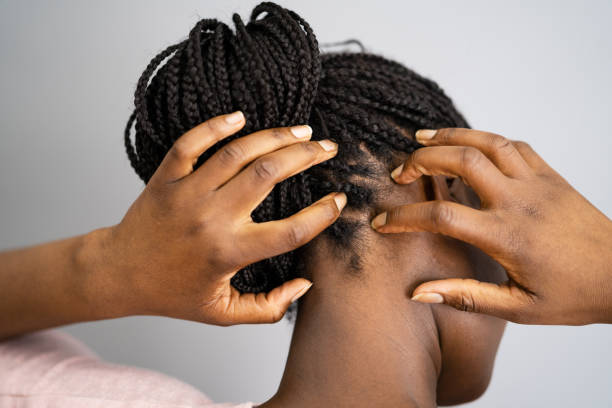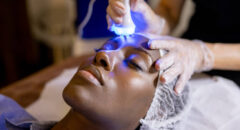
Psoriasis is bad enough, but when it specifically hits your scalp the hardest, it can be more than just an irritation. In Black women especially, scalp psoriasis goes well beyond the physical; it’s a direct attack on the psychological. In other words, self-esteem and self-image.
If scalp psoriasis is impacting the way you feel about yourself, whether in work settings or just chillin’ with friends and family, there’s help.
Let’s dive into a comprehensive guide so you can tackle this issue once and for all!
1. Scalp-Friendly Habits
Because scalp psoriasis can affect your appearance and hurt your self-esteem, it’s always a good idea to start with the basics. First off, go with low-manipulation. In other words, try hairstyles such as updos, braids, or twists. These are ideal because they don’t put too much tension on your hairline, which can hurt your skin and worsen your psoriasis.
Also, don’t forget your moisturizers! Ideally, you want conditioners, botanical oils, and fragrance-free shampoos. Skip the harsh chemicals and go with natural ingredients like shea butter and aloe vera – these are great for moistening the scalp and preventing irritation.
As you find the products that work for you, remember to clean and condition them consistently. Avoid sulfates in whatever you use, as these can take away your natural oils and lead to more dryness and more psoriasis.
Your routine is up to you, just make sure you stick to it, so your hair and scalp can adapt. And don’t forget to consider prescription topicals. Whether it’s tar-based shampoos, corticosteroids, or tea tree oil, always perform a test first.
Put a little on the skin, and see how you react. This is the best way to learn your triggers and irritants. And finally, try exfoliating. This helps to remove dead skin which can help to minimize those annoying psoriasis scales. Simply take a soft brush or scrub and gently go to work!
RELATED: Q&A: Dr. Mona Shahriari’s Tips For Treating Scalp Psoriasis in Black Skin
2. Get Your Diet Right
People often forget that scalp psoriasis is an autoimmune disease. This means that it is caused by problems with how your body responds to things. Whether it’s chemicals, weather, scratches, or hormones, you need to take care of your immune system.
So start with anti-inflammatory food. These include things like leafy greens, omega-3-rich fish, nuts, and berries. As you eat the right foods, be sure to constantly hydrate. Some people like to put extra minerals in their water, such as potassium, sodium, and magnesium. Just try to avoid artificial sweeteners and excessively sugary drinks.
Last but not least, know your food triggers. Many people with psoriasis respond poorly to gluten and dairy, so you might want to look for alternatives, reduce your intake, or just eliminate these types of food products entirely.
Speak with your doctor, as they can help you find a food plan that works for your particular psoriasis case.
3. Manage Stress Effectively
Yes, stress is often responsible for many scalp psoriasis flare-ups. Believe it or not, simply relaxing, meditating, or doing deep breathing can help prevent bad symptoms. We might not think of stress as affecting our skin that much, but it actually does a lot.
This is why regular exercise can also do wonders. When we exercise, we reduce the stress hormone cortisol and increase endorphin hormones, which elevate our mood. Not to mention, exercise promotes better blood flow, which is always important for a healthy scalp.
And finally, don’t be afraid to seek a helping hand. It could be a trusted friend or family member or a professional therapist. It might just be talking to your doctor for a few minutes to alleviate some concerns.
Find Your Solution
However you approach your particular scalp psoriasis, know that you have many resources at your disposal. A dermatologist can provide a personalized treatment plan, while support groups online and in-person can offer additional tips, treatments, and words of encouragement.
If you find your psoriasis is still not improving the way you’d like, or if it’s really diminishing your daily activities, you’re not outta options. In fact, biologics and light therapies are perfectly suited for aggressive cases.
But what it’s really about is holistic treatment. No one size fits all, so learn your body and don’t be afraid to try and fail. In time you will learn what approaches work for you and how often you need to incorporate certain measures.
Psoriasis may feel like a tremendous burden at times, but think of it this way: by taking steps to treat your psoriasis, you’re also improving your overall health. These are holistic changes that will not only address those scales, plaques, and annoying symptoms but also address an even larger concern: enjoying a healthy, happy life.









